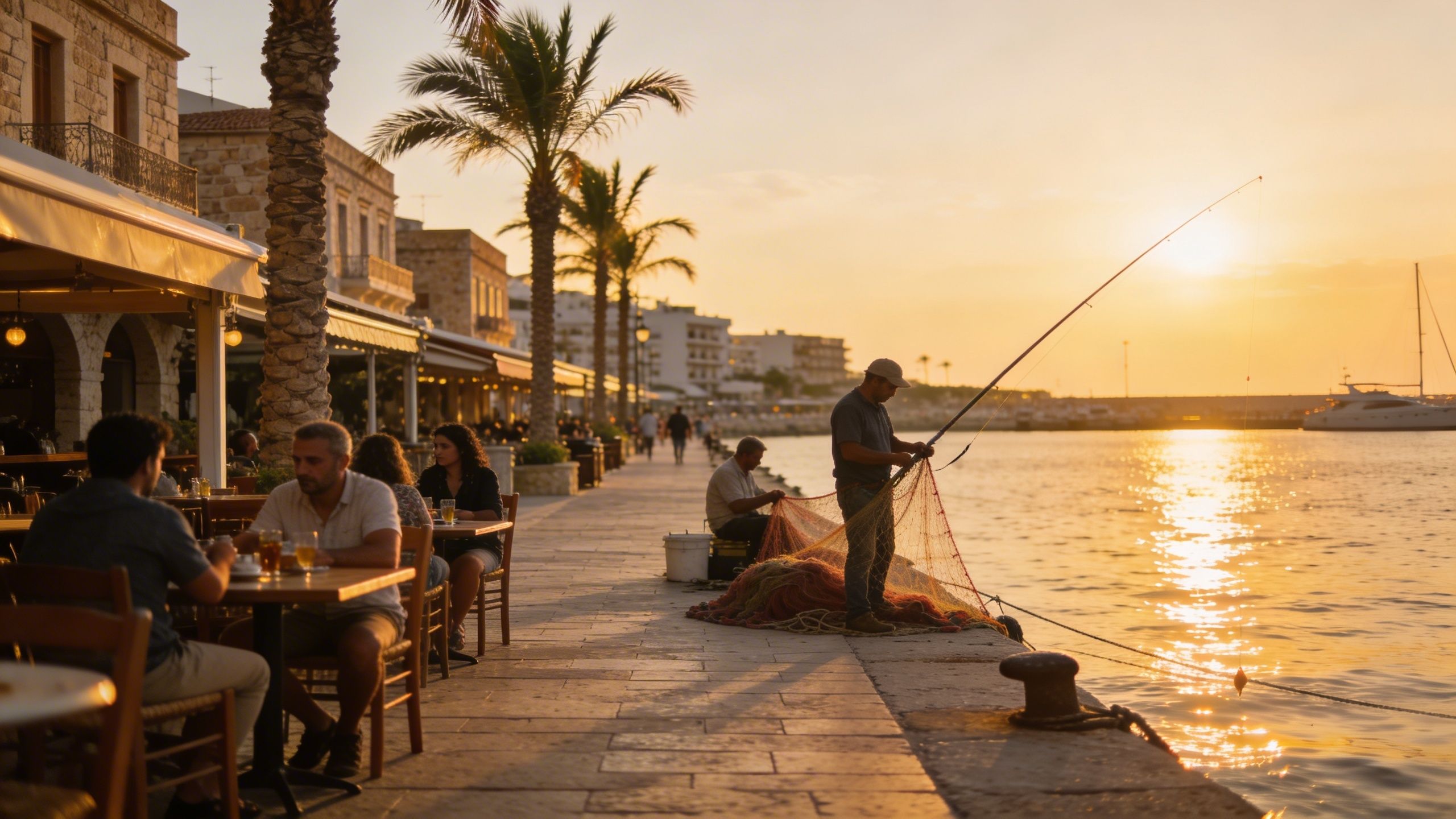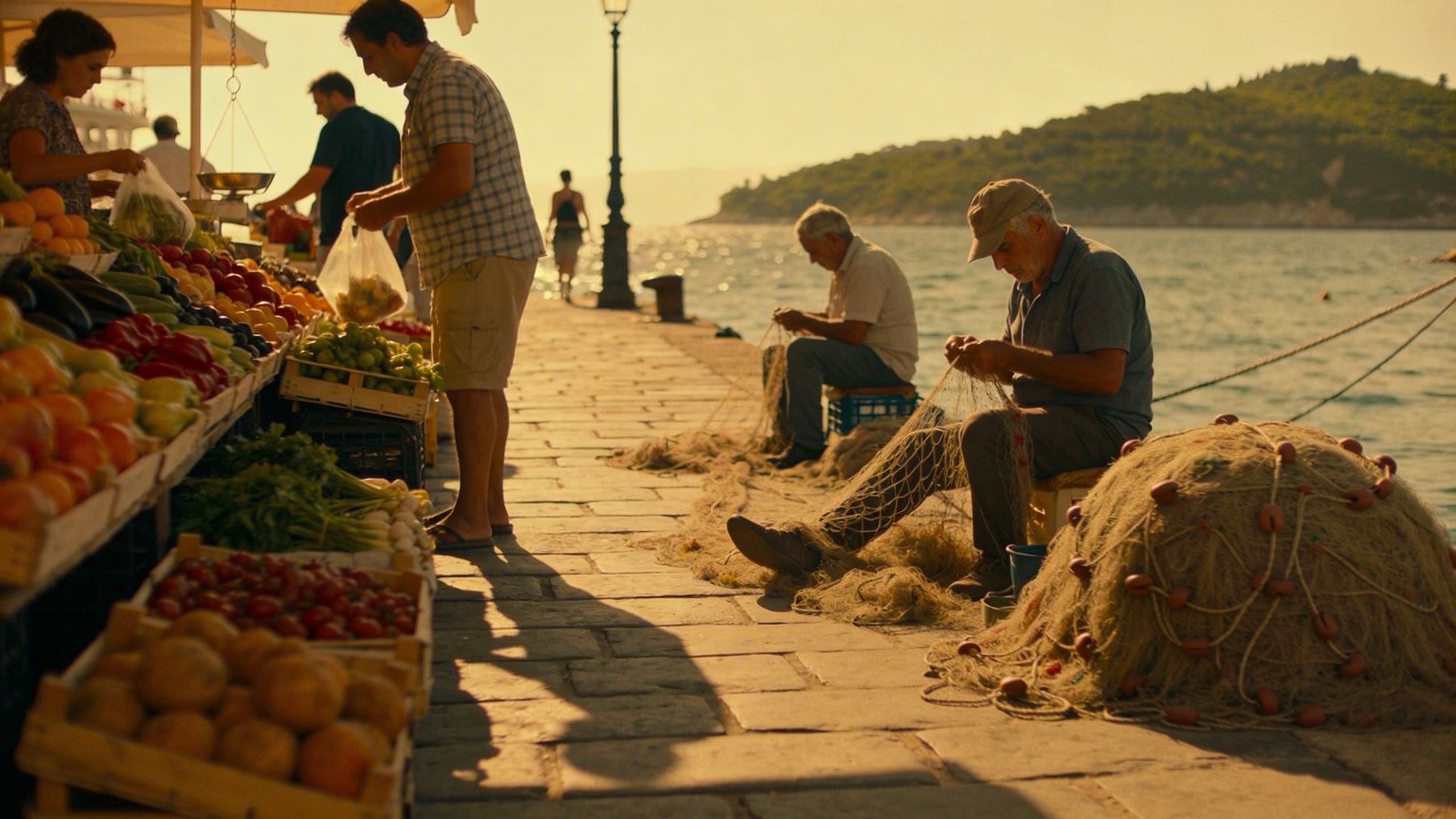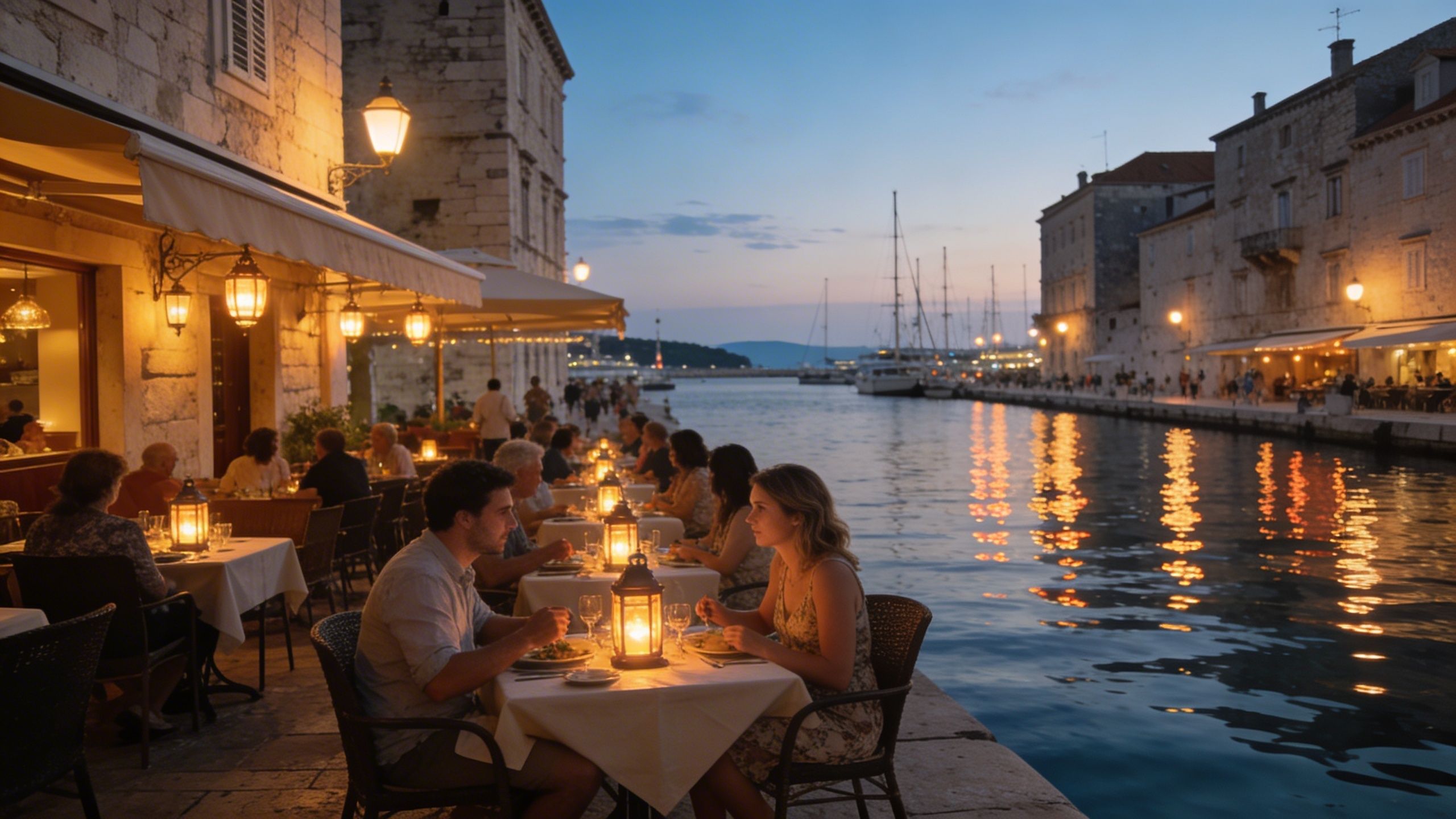How Croatia’s 2025 Tax Shift Shapes Real‑Estate Stewardship
Croatia’s 2025 reforms shift costs from one-off transactions to annual ownership charges; smart buyers pair neighborhood taste with municipal tax reality.
Imagine an early autumn morning in Split: the harbour rests beneath a pale sky, bakers on Marmontova set out trays of ciabatta while fishermen mend nets by Matejuška. It is easy to fall in love with these rhythms — and yet the choice to buy here now brings subtle fiscal choices that shape the life you will lead. Recent reforms have shifted the balance from occasional transaction costs to recurring ownership charges; understanding them is the difference between romance and stewardship.
Living the Croatian life — streets, seasons and senses
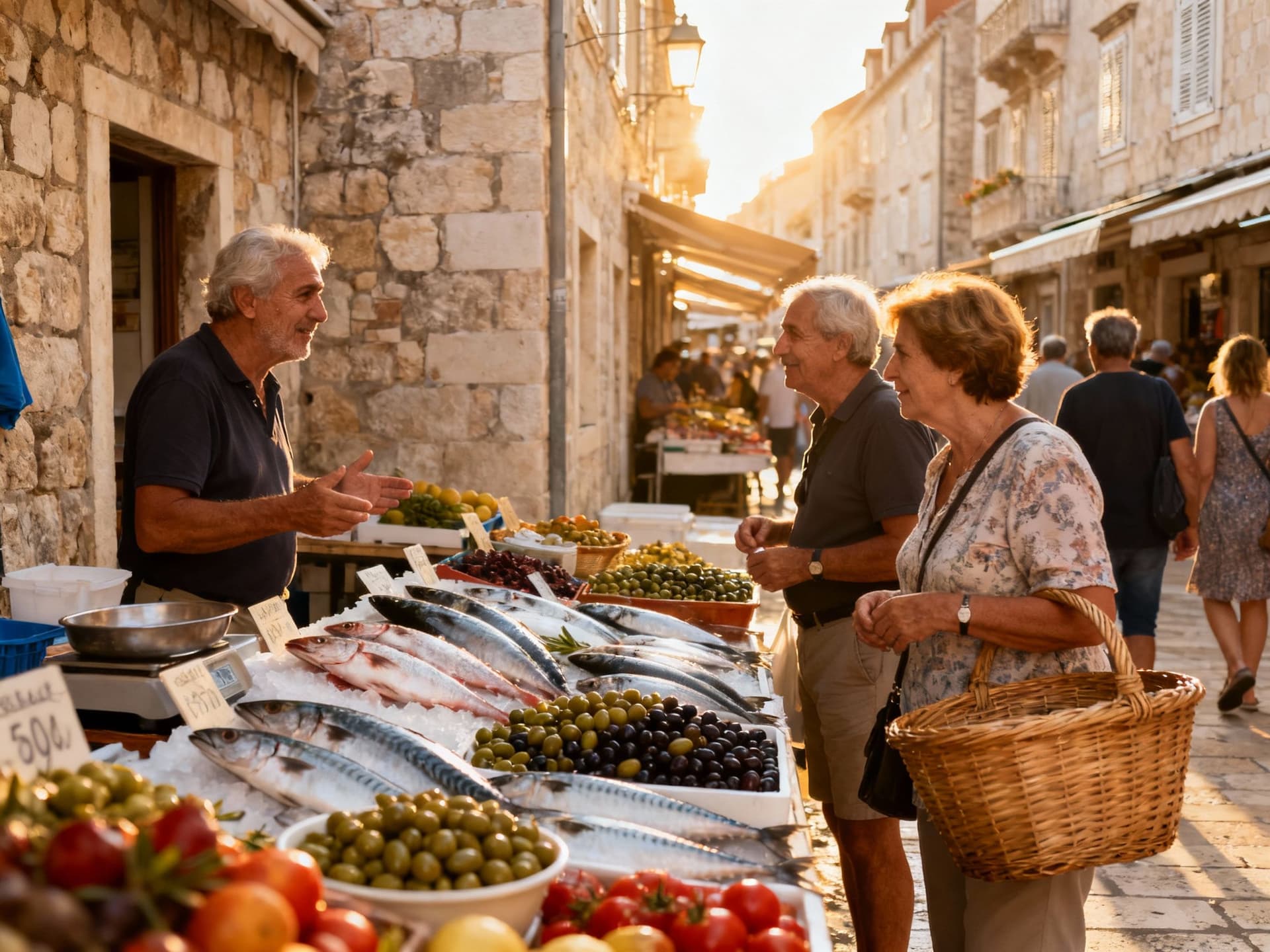
Croatia is lived in layers: the stone intimacy of Dubrovnik’s Stradun, the café terraces of Zagreb’s Tkalčićeva, the island hush of Hvar at dawn. Daily life favours proximity — small markets, neighbourhood konobas, and promenades where neighbours know one another. For a buyer this means properties are valued not only for square metres but for provenance: a terrace overlooking a fishing quay, a courtyard with a fig tree, a stairwell with hand-cut stone. These are the things that make ownership meaningful and, crucially, that local tax regimes now measure in recurring ways.
Neighborhood notes: Zagreb, Split, Dalmatian islands
Zagreb rewards those who prize urban depth — historic homes near Gornji Grad or new apartments in Maksimir that trade proximity to parks for steady year-round rental demand. In Split, look beyond the Riva: authentic life is found on Žnjan’s evolving promenade or the narrow alleys of Varoš where morning coffee is a ritual. On the islands (Korčula, Brač, Vis), properties with modest footprints and good storage are prized for their summer-to-offseason adaptability; expect quieter winters and a premium for sheltered harbours and year-round access.
Food, festivals and the calendar that shapes living
The rhythm of markets and festivals matters: truffle hunts in Istria, the Dubrovnik Summer Festival, olive harvests in October — these seasons affect short-term rental demand, maintenance scheduling and when neighbours gather. If you picture evenings at Konoba Mate in Komiža or a Sunday market on Dolac, you must also plan for the practicalities of ownership across seasons: winter heating, summer rental registrations and off-season caretaking.
Making the move: taxes that quietly change your lifestyle
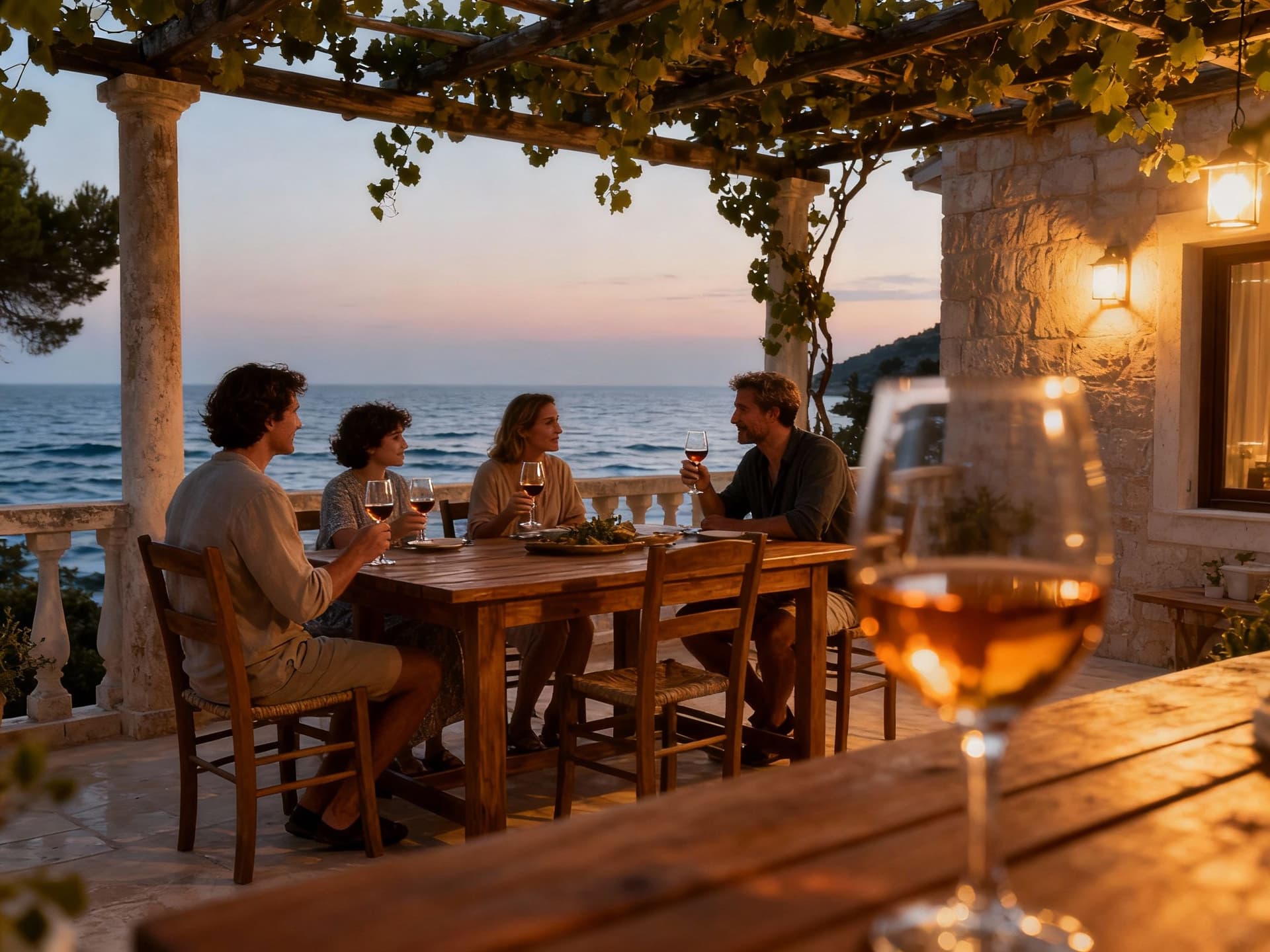
From 2025 Croatia moved toward a model that taxes ownership more directly. New local real estate taxes — set by municipalities between €0.60 and €8.00 per usable square metre — mean that a modest seaside villa can incur a predictable annual cost. At the same time, transfer taxes and VAT rules still govern the upfront cost: resale transactions generally carry a 3% transfer tax, while certain new-build sales may be subject to VAT. These are not abstract numbers; they influence where you buy, how you seasonally occupy, and whether you maintain a home as a primary residence or an investment.
Property types and fiscal outcomes
A restored stone townhouse in a historic centre often avoids VAT but remains subject to transfer tax and local charges; a newly constructed apartment bought from a developer may attract 25% VAT instead of transfer tax, raising upfront cost but sometimes simplifying recurring charges. For buyers who prize material authenticity and long-term stewardship, this trade-off sometimes favours older, well-maintained properties — but only after careful due diligence on construction legality and utilities.
Working with experts who preserve lifestyle as well as capital
Select advisors who speak both languages: tax law and place. A local notary and tax consultant can interpret whether a sale triggers transfer tax or VAT. A municipality’s decision on the new real estate tax can vary street by street; your agent should obtain the exact municipal ordinance that applies to the property’s address. This is the difference between an elegant purchase and a surprise annual bill.
Practical checklist before signing
Obtain municipal real estate tax rate for the property’s cadastral zone; confirm whether the sale is subject to 3% transfer tax or VAT; request a utilities and communal charges statement; verify short-term rental rules and co‑ownership consent requirements; consult a Croatian tax adviser about personal tax residency implications.
Insider knowledge: what expats wish they’d known
Expats quickly learn that charm has its costs. A 17th‑century stone house in Rovinj delights with timber beams and a walled courtyard, but maintenance, insurance and the new municipal real estate tax will be ongoing commitments. Conversely, a modern apartment in Rijeka may carry VAT upfront but offer predictable communal charges and easier seasonal management. The important lesson is to match the property’s fiscal profile to how you will live there: permanent residence, seasonal retreat or rental asset.
Cultural realities that shape ownership
Communal life matters in Croatia: condominium assemblies, neighbour consent for tourist letting, and an expectation that owners contribute to maintenance. These are social customs with legal force. If you wish to integrate — to attend summer village fiestas or winter market mornings — select a property that makes community participation easy rather than one that isolates you with burdensome upkeep.
Looking ahead: stewardship, succession and tax planning
Long-term ownership invites questions of inheritance and residency. Croatia’s position in the EU simplifies certain cross-border matters but inheritance tax and gift rules still require pre-planning. Thoughtful buyers consider property in the context of succession: clear titles, up-to-date building permits, and a local plan for maintenance. Engage a lawyer to draft wills or ownership structures that reflect both Croatian law and your home-country obligations.
Practical tips expats use to preserve lifestyle and tax efficiency
Confirm municipal real estate tax for the exact address before offer; consider longer-term leases to qualify for exemptions from the new tax; weigh VAT on new builds against maintenance and communal predictability; document renovation permits to avoid future tax or legal disputes; set up a local caretaker and bank account to manage recurring bills.
If the Croatian lifestyle is the draw — mornings at a small café in Trogir, afternoons walking pine-scented promenades, evenings with fresh-caught fish under a pergola — accept that good stewardship is part of the romance. Practical planning will preserve both the experience and the value. Begin by asking three simple questions of any local agency: what is the municipal real estate tax here; does this sale carry VAT or transfer tax; and who will manage the property across seasons. The answers will tell you if the address fits your life.
Norwegian with years in Florence guiding clients across borders. I bridge Oslo and Tuscany, focusing on legal navigation, cultural context, and enduring craftsmanship.
